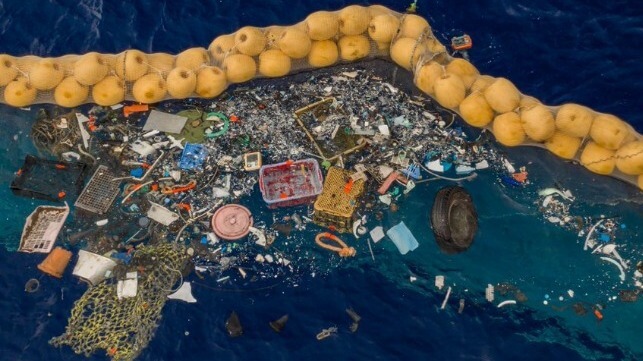Study: Growing Plastic Pollution Wreaking Havoc in Global South

Developing and poor countries are bearing the brunt of the plastic pollution crisis even as the world continues to delay the formulation of a treaty to protect human health and the environment, particularly the oceans which are choking on plastic waste.
A new study has revealed that the world is generating a staggering 57 million tons of plastic pollution annually, over two-thirds of which is coming from developing nations in the Global South and which is having devastating impacts on humans and the environment.
The study published in the Nature Journal and which aims to shine the light on the enormous scale of uncollected rubbish and open burning of plastic waste, has singled out India, Nigeria, and Indonesia as the leading plastic pollution hotspots generating 9.3 million tons, 3.5 million tons, and 3.4 million tons respectively. India emerges as the largest contributor because it has a large population of roughly 1.4 billion and much of its waste isn’t collected.
Though China has previously been reported to be the epicenter of plastic pollution, the country ranked fourth in the study with 2.8 million tons. China’s ranking is attributed to improvements in the collection and processing of waste over recent years. The UK was ranked 135, with around 4,000 tons per year, with littering the biggest source.
The study by researchers at the University of Leeds is said to show the devastating impacts of plastic waste as it spreads across the globe from the depths of the oceans to the highest mountaintops, and even inside human bodies. In low and middle-income countries in particular, the problem has been intensified by low levels of recycling. Although they have much lower plastic waste generation compared to the developed nations, they account for a large proportion of pollution because the plastic waste is either uncollected or disposed of in dumpsites.
The report highlights that more than two-thirds of the planet’s plastic pollution comes from uncollected rubbish with almost 1.2 billion people, 15 percent of the global population, living without access to waste collection services.
It is estimated that roughly 30 million tons of plastics amounting to 57 percent of all plastic pollution was burned in homes, on streets, and in dumpsites, without any environmental controls in place. This brought about “substantial threats” to human health including neurodevelopmental, reproductive, and birth defects.
In coming up with the findings, the researchers used AI to model waste management in more than 50,000 municipalities around the world allowing them to predict how much waste was generated globally and what happens to it.
“Uncollected waste is the biggest source of plastic pollution, with at least 1.2 billion people living without waste collection services forced to ‘self-manage’ waste, often by dumping it on land, in rivers, or burning it in open fires,” said Josh Cottom, one of the authors of the study.
He added that the health risks resulting from plastic pollution affect some of the world’s poorest communities who are powerless to do anything about it.
The study comes when the global crisis of plastic pollution is worsening fuelled by the more than 430 million tons of plastic produced annually. Many plastic products are single-use, hard to recycle, and can stay in the environment for decades or centuries, often being fragmented into smaller items.
Much of the plastic ends up polluting land, sea, and air while increasingly working its way into the human food chain. Estimates show that every day, the equivalent of over 2,000 garbage trucks full of plastic is dumped into the world’s oceans, rivers, and lakes.
Though the UN is spearheading the formulation of a draft treaty for zero plastic pollution, the process is proving to be painstakingly slow. It is also being frustrated by some top economies and the oil industry that believe the treaty will cripple their plastic-producing factories.
The opinions expressed herein are the author's and not necessarily those of The Maritime Executive.
No comments:
Post a Comment